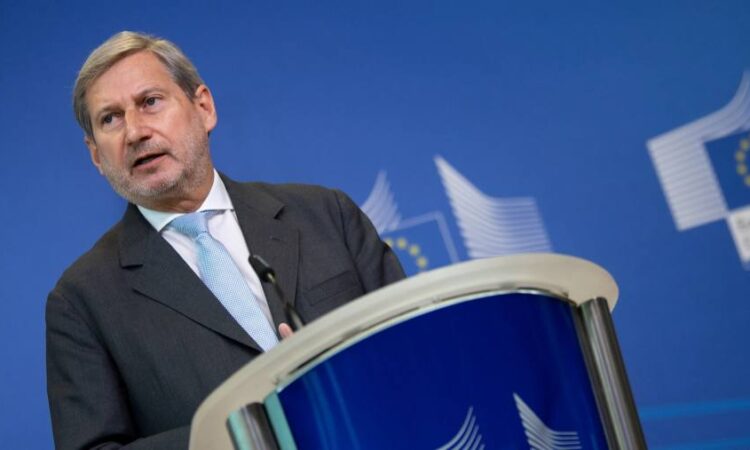
The EU’s debt costs are set to double in 2024 due to higher interest rates, the commission’s budget chief said on Wednesday, raising concerns over the bloc’s ability to respond to further financial shocks.
The EU has borrowed heavily in recent years to finance NextGenerationEU grants, part of the historic €800bn Covid-19 recovery programme agreed by member states in 2020.
But rising inflation, linked to Russia’s invasion of Ukraine, has led the European Central Bank to raise interest rates by 3.75 percentage points since July 2022 and prompted unforeseen financing costs for the EU, the commissioner in charge of the budget, Johannes Hahn, told MEPs on Wednesday.
“The cost of borrowing almost doubled compared to the amount initially forecast for 2024,” he said. “Based on 2020, all of us were relying on the interest rate situation of that period.”
While Hahn said that all existing EU programmes would be financed for 2024, the rise in interest costs — from previous predictions of €2.1bn to €4bn — leaves the bloc with little room to manoeuvre or provide funds for unforeseen events.
The publication of the €189.3bn draft budget for 2024 comes ahead of a review of the bloc’s longer-term budget from 2021 to 2027, its multiannual financing framework (MFF), which will be presented on June 20.
“We will make a proposal for new funds,” Hahn said. “We’ll have to discuss and see how far we can get.”
In a heated meeting between Hahn and parliamentarians, MEPs warned that the commission needed to adjust its long-term financing plans to provide more flexibility.
“We hope nothing bad happens but, colleagues, hope is no strategy,” said Siegfried Mureșan, the lead MEP on the budget and a member of the conservative European People’s party grouping. “It’s clear we have to work together to adjust the MFF . . . We need to avoid this becoming a ticking bomb.”
Nicolae Ştefănuţă, the budget lead for the Greens for 2023, said that interest payments now exceeded the total spend of €3.7bn on Erasmus, the bloc’s popular student exchange programme, in a sign of how other programmes were not rising in line with inflation.
“Young people will understand they are less important than the union’s financial debt,” he retorted.
The rise in interest rates sets the stage for the commission to request extra funds for its budget from member states, generate new sources of income or cut back on expenditure.
Any cuts in agriculture funding or the support for lower-income states known as cohesion funding, which together make up the bulk of the EU budget, would be fiercely disputed by member states, as would asking for significant extra member state contributions.
Valérie Hayer, the spokesperson on budgetary issues for the centrist Renew Group, said “there is only one credible solution . . . to increase the union’s budget by creating own resources”, including through proposals for carbon taxes.
“We expect the commission to resist calls from the [European] Council [of member governments] to reduce the budget as this of course would not be justified,” said Mureșan.






